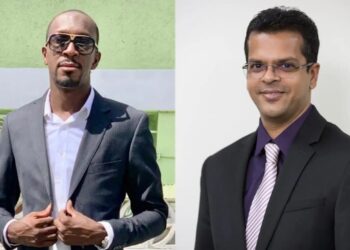The Guyana Press Association (GPA) has expressed deep concern over recent threats by the Guyana Police Force (GPF) to pursue charges of sedition and obstruction of justice against journalist Leroy Smith.
These warnings stem from Smith’s reporting on an ongoing criminal investigation involving Assistant Commissioner of Police Calvin Brutus, led by the Special Organised Crime Unit (SOCU).
The GPA has since noted the actions of SOCU, a division of the GPF, particularly a press statement issued this week by Mark Ramotar, Head of the Corporate Communications Unit, which challenged Smith’s report and hinted at possible legal action against him.
The police’s statement, which emerged after Smith published his report on October 23, 2024, on Big Smith News Watch, not only disputed Smith’s findings but also portrayed him as a “hired gun.”
It further suggested that his coverage could trigger legal proceedings and a criminal inquiry. In response, Smith has lodged an official complaint with the GPA, standing firmly by his reporting and expressing deep concern over what he perceives as threats aimed at undermining his work as a journalist.The GPA has long prioritised training its members on ethics and reporting standards, consistently emphasising responsible and accurate journalism.
In light of this, the association has condemned SOCU’s threats, describing the potential revival of sedition charges—a controversial and outdated approach in media regulation—as alarming and egregious. The GPA pledged to address this matter with international press freedom advocates.The issue of sedition laws remains contentious, as major democracies, including the United States and United Kingdom, have abolished such legislation.
In 2020, the European Union, in its final report on Guyana’s general elections, noted that while Guyana’s Constitution guarantees freedom of expression, the country’s sedition and criminal defamation laws contravene international standards. According to the EU report, these laws pose a risk of self-censorship among media professionals, despite the absence of ongoing criminal cases against journalists.
The GPA urges the Guyanese Government and legal advisors within the GPF to consider the EU’s findings and to promote an environment where media is viewed as a partner in development rather than as an adversary. Despite this situation, the GPF has the opportunity to demonstrate its commitment to transparency and impartiality by fostering a more constructive relationship with the media.
In past instances, the Force has reached out to journalists, sometimes providing information to help shape public perception on cases and alleged offenders. However, the Force has also been criticised for selectively releasing information to certain media outlets and for occasionally withholding responses to media inquiries on important matters.
The GPA has previously called attention to these inconsistent practices, which contribute to a climate of mistrust.The GPA regards SOCU’s recent actions as part of a disturbing trend that could discourage journalists from reporting on issues of public interest.
It calls upon all parties to denounce any attempts to intimidate the press.At the same time, the GPA advises all media practitioners to uphold the highest ethical standards, ensuring that their reporting is grounded in accuracy and objectivity.
The GPA underscores that the media’s role is to serve the public interest and urges journalists to avoid allowing personal or external biases to compromise their work.













